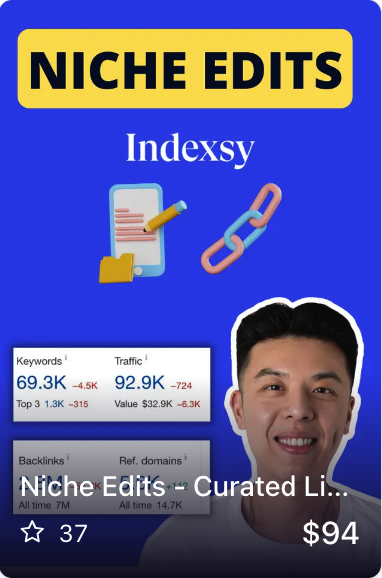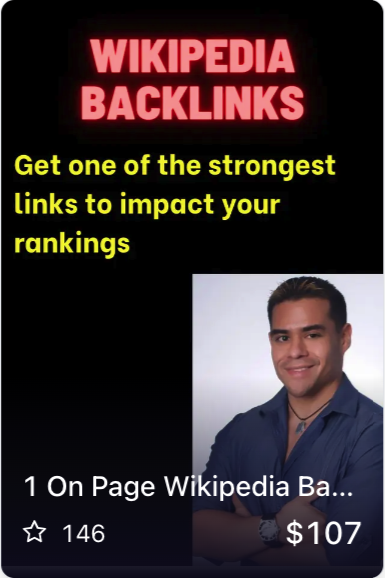Take Your E-A-T Score to the Next Level with These Off-Page SEO Techniques

In the ever-changing world of digital marketing, algorithms of search engines, and site’s search engine rankings staying on top of the latest SEO trends and techniques is essential. Improving your E-A-T score through off-page SEO is critical in achieving high search engine rankings. Google’s emphasis on E-A-T (Expertise, Authority, and Trustworthiness) has only increased with updates like BERT, which prioritizes entities and topics over.
To succeed in SEO today, it’s not just about ranking high in search results but also about providing valuable content and building trust with both users and search engines. Prioritizing E-A-T and incorporating structured data in an off-page SEO strategy helps search engines understand the context and relevance of your content and can improve your website’s credibility and reputation.
When it comes to off-page SEO, creating high-quality content, building authoritative backlinks to your own site (link building), and optimizing the user experience are all key components of E-A-T optimization, particularly for Your Money or Your Life (YMYL) websites. By staying up-to-date with Google’s search quality raters guidelines and focusing on E-E-A-T (Expertise, Experience, and Authority), you can ensure that your website offers high-quality, trustworthy content that ranks well on search engine results pages.
Incorporating structured data is a critical part of E-A-T optimization. Studies have shown that using structured data can improve website credibility by 42% and increase click-through rates by 30%. By leveraging structured data and other SEO techniques to enhance your E-A-T score, you can establish your website as a reliable source of information and attract a loyal audience.
To be successful in digital marketing, it’s essential to stay ahead of the curve and adapt to the latest trends and best practices. Embracing the importance of E-A-T can help you establish your website as a trusted source of information and attract a loyal audience.
In this article, we will explore the key components and their impact on off-page SEO, with a specific focus on the relationship between off-page SEO and experience, expertise, authority, and trust. We will discuss the importance of creating high-quality content, leveraging structured data and entities, link building, optimizing the user experience, and improving domain authority.
Best SEO Services on Vettted
Check out these vetted services to grow your organic traffic.
What is E-E-A-T in SEO?

E-E-A-T is a critical SEO term to understand in today’s digital landscape. Google’s Search Quality Rating Guidelines use E-E-A-T, an acronym for Expertise, Experience, Authority, and Trustworthiness, to evaluate the authority of a potentially authoritative site based on criteria such as website expertise, authoritativeness, and trustworthiness.
E: Expertise
E: Experience
A: Authoritativeness
T: Trust
E-E-A-T plays a vital role in SEO, particularly for YMYL (Your Money or Your Life) sites that could impact a person’s future happiness, safety, health, finance, and legal advice. It helps search engines evaluate the quality of the content on your website pages, and if your website falls under YMYL, demonstrating E-A-T is critical.
To showcase your expertise, create high-quality content demonstrating your knowledge and experience. Leverage author bios and known entities from the web or Wikipedia, and include on-page SEO efforts like structured data and entities. These elements can help search engines understand the context and relevance of your content, allowing you to optimize content written off-page that enforces search and user intent, all while focusing on E-E-A-T.
Expertise
Expertise is the bee’s knees, the cat’s pajamas, and the cherry on your content marketing cake. But it’s what makes your content shine and stand out in a sea of mediocrity. To show off your expertise, create high-quality content that is well-written, engaging, and informative content.
And remember to sprinkle in some authoritative sources, like a ninja warrior sprinkles salt on their food. Because when it comes to expertise, you can never have too much of a good thing.
Experience
When it comes to E-A-T, the “E” stands for experience. It’s basically like having a Ph.D. in a particular topic. The more articles you’ve published on a topic using your name as the author, the higher your experience score.
If you want to level up your experience score, include more links to your areas of expertise in the “Experience” section of your author bio. Doing so will give you a better chance of ranking high on search engine results pages.
Authority From Zero to Hero
Are you ready to become the ultimate internet boss and leave your competitors in the dust? Well, first things first – it’s time to establish your website’s authority! Google evaluates websites based on off-site SEO factors like backlinks, reviews, and news articles and mentions. So, ensuring your creator creates top-notch content with quality links to reliable sources is crucial.
If you want to be known as the baking master of the internet, then roll up your sleeves and start cooking! Whip up some scrumptious recipes and share your expert tips and tricks with the world. Show Google you’re the real deal, and watch your website’s search engine rankings rise higher than a perfectly fluffy souffle. Let’s start baking and conquer the internet, one delicious treat at a time!
Trust
Building a website is like solving a puzzle, and trust is the missing piece that completes it. To get Google to deem your website trustworthy, you need to show them your website’s reputation, reviews, and content quality.
Bake up your authoritative website with accurate information and engaging content with links to credible and reputable sources to earn your users’ trust. Then, sprinkle in some website design optimization for easy navigation, speedy loading, secure browsing experience, and voila! You’ve got yourself a trusty website.
Understanding How Google Uses E-A-T In Its Search Quality Rater Guidelines
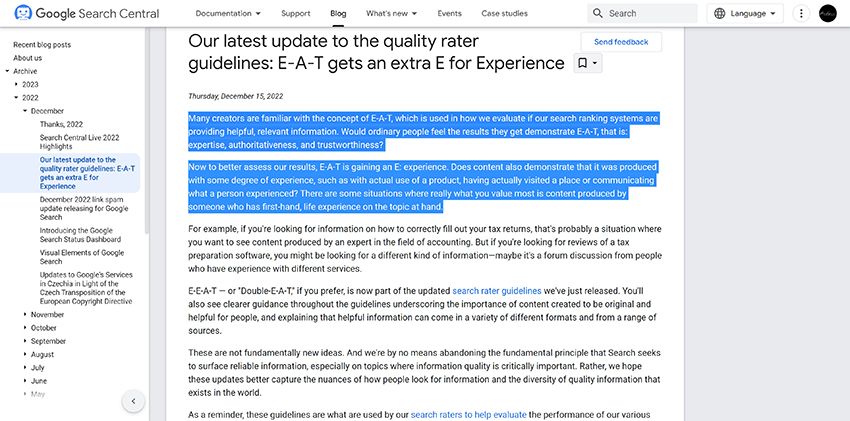
While we have already covered the significance of Expertise, Experience, Authority, and Trustworthiness in search engine optimization, it is crucial to understand that these key factors are not the only ones determining a website’s quality and relevance to user queries.
Google has declared that E-A-T isn’t a direct ranking factor in search rankings and doesn’t affect search engine algorithms like other SEO techniques like link building do.
However, as it always goes with Google, each statement is an enigma.
Let’s look at these guidelines in detail below, but since people remember lists here you:
- They are meant to help people who are able to review sites manually.
- It confirms important information or content which Google deems crucial to the rating.
- Pages are split into the lowest, highest, and highest quality.
- Google wants good content quality on the site for rankings.
- Rating systems must consider other various ranking factors.
I’ll let Lily Ray explain it simply:
If you’re wondering if E-A-T is still relevant, Google’s Gary Illyes, google’s public liaison, said in his 2019 Q&A with Marie Haynes that there isn’t a single internal E-A-T score at Google.
This caused some to speculate that E-A-T’s importance was diminishing.
However, in the same interview, he mentioned that increasing E-A-T is still a good practice and that it is evaluated by multiple algorithms.
So, what’s the bottom line? While E-A-T isn’t a sole ranking factor, it’s still crucial to focus on it.
Since the rating is evaluated by various algorithms, enhancing your website’s expertise, authoritativeness, and trustworthiness can only help you in the long run. Remember, prioritizing first-hand experience, expertise, authority, and trust is just one of the many components that make up a strong SEO strategy.
Now that we have gotten that out of the way, E-A-T remains an indispensable element for SEO success. While E-E-A-T is not a direct ranking factor, it plays a vital role in helping search engines evaluate web pages’ quality.
To improve your’s quality, you can leverage your off-page SEO efforts by enforcing credibility, but its a bit more nuanced that and here’s how:
Page-by-Page Evaluation
E-A-T is evaluated page-by-page, so not all web pages on your website will have the same level of expertise, authority, and trustworthiness. Google suggests creating high-quality content for each web page, and building authority and trustworthiness individually is essential to optimize your quality score. Google explains this approach can help improve your website’s overall reputation.
Prioritizing the User Experience:
Prioritizing the user experience is key when optimizing for E-A-T. Google’s algorithm aims to provide the best possible experience for users, so ensure your website is easy to navigate and loads quickly. Use clear language, include visual aids like images and videos, and break up content into bullet points or numerical lists. By prioritizing the user experience, you can improve your website’s quality score and boost visibility.
The Importance of Trust, Authority, and Relevance in SEO
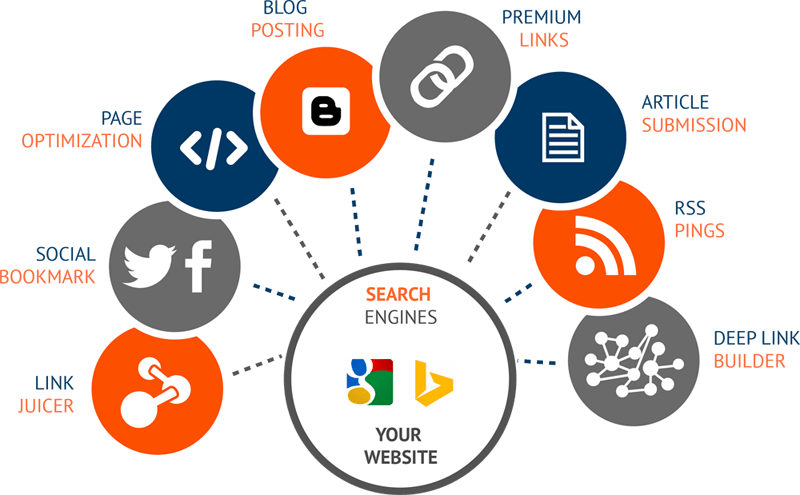
In today’s highly competitive online world, SEO success depends on your website’s trust, authority, and relevance. Building trust with your audience by providing high-quality content with authoritative references is crucial for attracting and retaining readers and driving traffic to your site.
At the same time, ensuring that your website is relevant to your target audience and aligns with best practices can help boost your search engine visibility and make it easier for potential customers to find you. This is why developing a strategy that focuses on producing high-quality content showcasing your expertise in your particular field or industry is essential.
Building authority and trustworthiness while prioritizing the user experience are critical components of any successful SEO strategy. To do this, you need to use clear and concise language and include structured data to help search engines understand the context and relevance of your content. You can also build internal and external links from guest posts to authoritative websites to establish your credibility further.
It’s crucial to remember that E-A-T (Expertise, Authority, and Trustworthiness) is a crucial aspect of SEO, especially for websites that deal with YMYL (Your Money or Your Life) topics. These topics include health, finance, and legal advice, which can significantly impact people’s lives. Therefore, it’s vital to ensure that the information provided in your content is accurate, reliable, and trustworthy.
To improve your website’s E-A-T score, your content must be well-structured, with factually accurate content, and written by experts in the field. Your website’s reputation, link-building strategies, and social media presence also play a significant role. By establishing a strong reputation based on your expertise, authority, and trustworthiness with real users, you can enhance your website’s E-A-T score and ultimately succeed in your SEO efforts.
However, E-A-T is just one aspect of optimizing your website for organic and referral traffic. One secret tip to improve your website’s E-A-T score is to update your content regularly with fresh and relevant information. Improving the quality of your website’s content can establish it as a trustworthy and authoritative source in your industry. This can lead to better search engine rankings. User-generated content, such as reviews and testimonials, can also enhance your website’s credibility and trustworthiness, ultimately contributing to your overall SEO success.
The Connection Between Your E-A-T Score and Off-Page SEO

Ok, we have established that the connection between your E-A-T score and off-page SEO is crucial for an authoritative site’s success in Google’s search results. The E-E-A-T criteria evaluates your website’s expertise, experience, authoritativeness, and trustworthiness.
All of these guidelines can impact your off-page SEO effectiveness. So where is the connection? It is all about the synergy of content.
Google uses these factors synergistically to determine the quality and relevance of both your off-page and on-page content and the credibility of your website as a whole.
Let’s take a closer look at how.
How To Improve Your E-A-T Score & Optimize Your Off-Page SEO

1) Brand Mentions

Positive reviews, news articles, and mentions from other reputable websites and sources can improve your website’s reputation and show Google that your website is trustworthy.
Example: If you own an ecommerce business, being mentioned in a positive review by a popular blogger can boost your brand and attract more customers.
Actionable tip: Keep track of online reviews and mentions of your business and respond to them promptly and professionally. This can improve online reputation and lead to more brand mentions.
Pro tip: Use tools like Google Alerts or Mention to monitor mentions of your brand online and leverage those mentions for link-building opportunities.
2) Social Media

Sharing your high-quality content on social media platforms, building relationships, and engaging with your audience can increase your website’s visibility and attract more traffic.
Example: If you run a-based business, sharing informative content on social media can help you connect with potential clients and establish your authority in your industry.
Actionable tip: Choose social media platforms where your target audience is most active and engage with them regularly. This can help build relationships and establish trust.
Pro tip: Use social media analytics tools like Hootsuite or Sprout Social to track your engagement metrics and optimize your social media strategy.
3) Optimizing Content for SEO
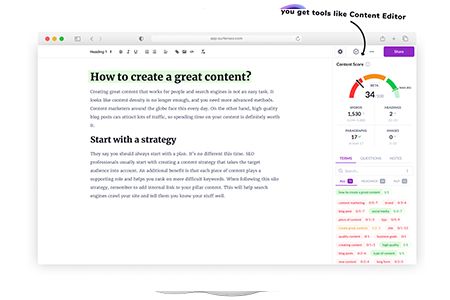
Optimizing your website’s content for information retrieval systems is crucial for improving its ranking. But how can you optimize it for both rankings and topical authority?
It’s all about keyword research and using NLP (Natural Language Processing) keywords and semantic SEO. These techniques help Google understand your content, increase search volume, and increase your chances of ranking higher. Using tools such as Surfer, Frase, Clearscope, or Cora can help you optimize your content for NLP and the keywords the competition uses. This will help your content rank higher and establish your topical authority.
Example: Suppose you’re running a service-based business, like a financial planning service. In that case, you can optimize your website’s content by researching the keywords your target audience uses to find financial advice. You can use NLP keywords and semantic SEO techniques to increase your website content’s topical authority and improve rankings.
Actionable tip: Use keyword research tools and analyze the content of your competitors to identify the top-performing keywords and their variations. Use these keywords naturally throughout your content to help Google understand your content better.
Pro tip: To optimize your content for rankings and topical authority, focus on using long-tail keywords and using them naturally throughout your content. Remember to use LSI (Latent Semantic Indexing) keywords to make your content more relevant to the topic. Using LSI keywords can help you create more comprehensive content that covers a wider range of topics and subtopics. In addition to keyword rankings, this approach can help establish your topical authority in your niche and search for traction.
Importance of BERT and Hummingbird for optimization: BERT and Hummingbird are two of Google’s important search algorithm updates. BERT (Bidirectional Encoder Representations from Transformers) is a deep learning algorithm that uses NLP to help Google better understand the natural language used in search queries. Hummingbird, on the other hand, is an algorithm update that focuses on understanding the meaning behind a search query rather than just the keywords used.
Optimizing your content for BERT and Hummingbird can help your website rank better by making your content more relevant and useful to searchers.
4) Build Quality Backlinks
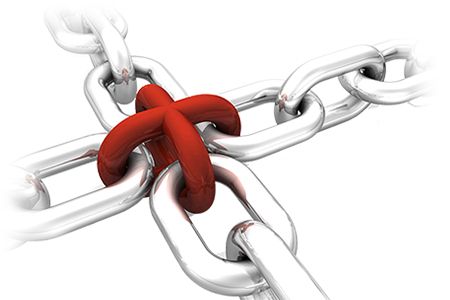
Building high-quality pages with backlinks from other websites and authoritative sites and websites is crucial for improving your search engine rankings. In addition, this can help improve the overall page quality rating of your entire website. Think of it like receiving a recommendation letter from a respected mentor or teacher. If someone trustworthy recommends you, others are likelier to trust and respect you.
Example: If you’re running an e-commerce website, consider contacting high-authority websites or well-known brands in your niche for backlink opportunities. Building relationships and earning quality backlinks can improve your website’s reputation and boost its search engine rankings.
Actionable tip: Use link-building tools like Ahrefs or Moz to identify high-authority sites in your niche to reach out to for link-building opportunities. When reaching out, make sure to provide value and make it clear how the backlink will benefit both parties.
Pro tip: To ensure you earn high-quality backlinks, build relationships with relevant websites in your niche. This can include participating in forums, guest posting, or collaborating on content. Consider using link monitoring tools like SEMrush or Majestic to track the quality of your backlinks and identify any potential issues.
5) Clear and Easy-to-Find Contact Information

Clear and easy-to-find contact information is crucial for any website. It helps build trust with potential customers and clients and ensures they can easily contact you.
Example: Suppose you run an e-commerce website. In that case, having a clear and easy-to-find contact page with your phone number, email address, and physical address is essential. This information can help customers feel more comfortable making a purchase, knowing they can easily contact you if they have any issues or questions.
Actionable tip: Include your contact information in the header or footer of your website so it’s visible on every page. You can also create a dedicated contact page with all your contact information, including social media profiles and a contact form.
Pro tip: Make sure your contact information is consistent across all online channels, including social media, business directories, and review sites. This consistency can help improve your website’s authority and relevance in search engine results pages.
Additionally, consider using schema markup to help information retrieval systems understand your contact information and display it more prominently in search results.
6) Update Content for Value

Regularly updating your website’s content and low-quality content is essential to keep it fresh and relevant to your audience. But it’s not just about adding new information or fresh content; it’s about adding value to the existing content. This means updating content with new data, insights, and perspectives to help your audience make better decisions or understand a topic.
Example: If you run a health and wellness website, you can update your existing content on topics such as nutrition, exercise, and mental health by incorporating the latest research findings and trends. This will improve the value of your content and establish your website as a reliable source of information in the industry.
Actionable tip: Use tools such as Surfer, Frase, Clearscope, or Cora to analyze your existing content and identify areas that can be updated with new data or insights. Also, consider adding multimedia elements like images, videos, or infographics to make your content more engaging and shareable.
Pro tip: When updating your content, consider the E-A-T (Expertise, Authoritativeness, and Trustworthiness) principles. If you’re updating content on topics related to Your Money or Your Life (YMYL), such as medical advice or financial stability, make sure to include a reliable information source to ensure the data is valid.
Additionally, ensure that your content is written professionally and covers a variety of subjects to establish your website’s authority in your niche. Finally, review and update your content regularly to keep outdated content fresh and relevant to your audience.
7) Author Names and Bios on Blog Posts
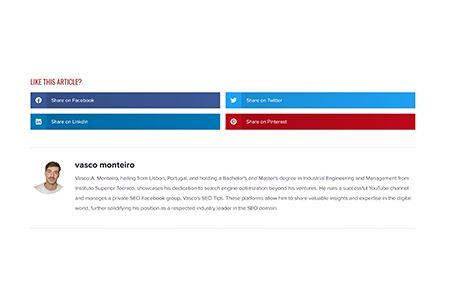
Author names and bios on blog posts are important for establishing trust and credibility with readers and for search engine optimization (SEO). Google Quality Raters look for author names on blog posts. If an author is associated with the information and a known entity, it can help boost the credibility of the content.
Example: If you’re running a health and wellness blog, include author names and bios on each blog post. This will help establish the credibility and expertise of your authors who guest posts, which can help build trust with your readers.
Actionable tip: Encourage authors to create comprehensive bios highlighting their expertise, experience, and relevant external links back to their social media profiles or websites. Ensure the biographies and links are easy to find and prominently displayed on each blog post.
Pro tip: Implementing schema markup on your website can also help establish the relationship between authors and entities. Schema markup is a type of structured data that helps web indexing mechanisms better understand your website’s content.
By implementing schema markup, you can improve the visibility of your content in the search results and increase the chances of appearing under relevant keywords in the knowledge panel. This can help boost the credibility and authority of your website and authors.
8) Google Business Profile (GBP)
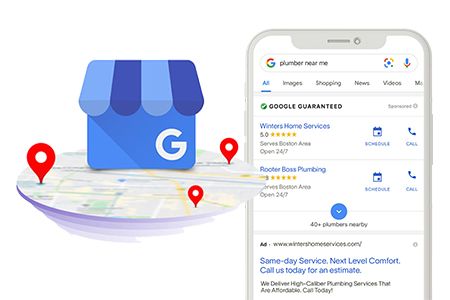
Optimizing your Google Business Profile (GBP) is an important off-page SEO strategy to improve your website’s search results. A well-optimized Google profile increases your business’s visibility in local searches on Google and can boost your local SEO ranking.
Example: If you own a local bakery, add all relevant information about your business to your Google Business Profile, such as your address, phone number, hours of operation, and customer reviews. This will help potential customers find your business when searching for bakery shops in the local area.
Actionable tip: Keep your Google Business Profile up-to-date with changes to your business information or services. Respond to customer reviews promptly and address any negative feedback professionally. This will show Google that your business actively engages with its customers and can improve your local SEO ranking.
Pro tip: Implement schema markup on your website to help Google understand your business’s relationship to your physical location. This can include using the LocalBusiness schema to provide more detailed information about your business, such as its address, phone number, and opening hours.
Proper schema implementation can improve the accuracy of your Google Business Profile and boost your local SEO ranking.
9) Terms and Conditions and Privacy Policy Pages
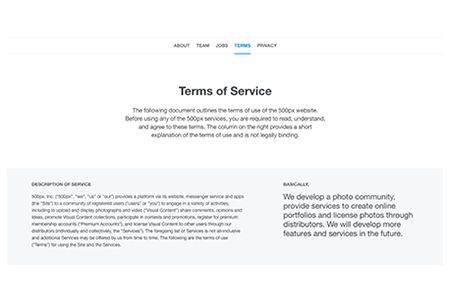
When it comes to building trust with your website visitors and complying with Google’s guidelines, having clear and easy-to-understand Terms and Conditions and Privacy Policy pages is crucial. These pages protect your website visitors’ privacy and prove to Google that your website is a trustworthy source of information.
Example: If you run an e-commerce website, you must have clear and comprehensive Terms and Conditions and Privacy Policy pages. This helps build trust with your potential customers and shows them you value their privacy.
Actionable tip: To ensure transparency and build trust with your website visitors, include links to relevant pages or sources on other websites that support the claims made in your Terms and Conditions and Privacy Policy pages. This can help establish your website as a credible and trustworthy source of information.
Pro tip: Make your Terms and Conditions and Privacy Policy web pages easy to find and understand. Use clear and concise language and avoid legal jargon. Consider using a professional privacy policy generator or consulting with a legal expert to ensure that your pages comply with local and international laws and regulations.
And don’t forget to have an SSL certificate. An SSL certificate is a digital certificate that provides authentication and encryption for a website, ensuring secure connections between a user’s browser and the website server.
10) Mobile Optimization

Mobile optimization is a critical factor in website success. In fact, mobile devices account for more than half of all website traffic worldwide. Optimizing your website for mobile devices improves user experience and can boost your search engine rankings.
Example: Suppose you’re running an e-commerce website. In that case, mobile optimization is essential to ensure that your site is accessible to users on mobile devices. In addition, optimizing your site for mobile devices can improve the user experience and boost your search engine rankings, leading to more traffic and sales.
Actionable tip: To optimize your site for mobile devices, focus on creating a responsive design that automatically adjusts to the device’s screen size. Use large, readable fonts, clear navigation, and minimize the use of pop-ups, which can be difficult to use on mobile devices.
Pro tip: To ensure your site meets the latest mobile optimization standards, focus on page experience and Core Web Vitals. These metrics measure factors such as loading speed, interactivity, and visual stability, which are all essential for a positive user experience on mobile devices. You can test these metrics using tools like Google’s PageSpeed Insights and Web.dev.
Additionally, regularly check the mobile usability report in Google Search Console to see if there are any issues with your site’s mobile usability. If there are any issues, take steps to address them promptly to ensure your site is optimized for mobile devices.
The Key Take Aways
So, there you have it – focusing on improving your E-A-T score through off-page SEO factors and your technical SEO and on-page SEO strategy can make a world of difference for your site’s authority and content creation.
It can help increase your search engine rankings and online visibility, drive more site visitors, and establish your expertise, authority, and trustworthiness.
And that, my friends, is key to driving more organic traffic, branded searches building an audience, and boosting conversions.
But let’s face it, gone are the days in the SEO industry when you could simply stuff your website with keywords and expect to rank high on Google. Sorry to burst your bubble, but those SEO tactics are long gone. Now you need to focus on building a better website experience to establish trust and credibility through E-A-T and E-E-A-T. It’s time to leave the flashy websites of the past behind and focus on creating authoritative content that truly resonates with your audience while following Google’s guidelines.

Vasco Montiero
Vasco A. Monteiro, hailing from Lisbon, Portugal, and holding a Bachelor’s and Master’s degree in Industrial Engineering and Management from Instituto Superior Técnico, showcases his dedication to search engine optimization beyond his ventures. He runs a successful YouTube channel and manages a private SEO Facebook group, Vasco’s SEO Tips. These platforms allow him to share valuable insights and expertise in the digital world, further solidifying his position as a respected industry leader in the SEO domain.




